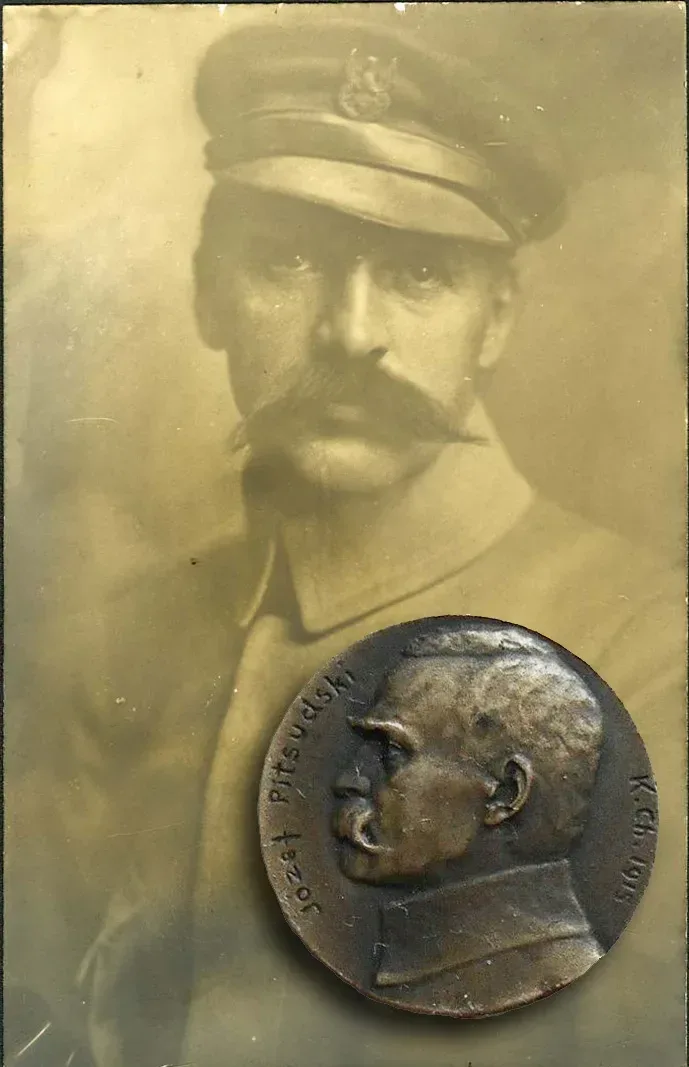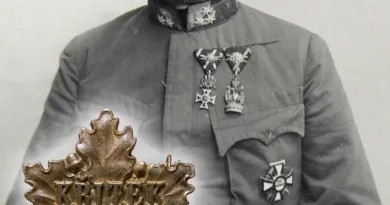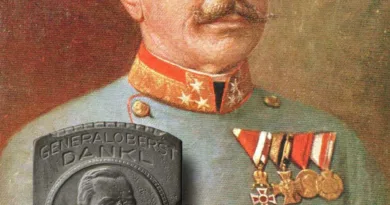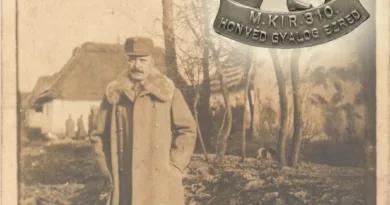Józef Pilsudski
One of the leaders of the Polish Legion during the Great War. He was born in 1867 in Zulow, which is now part of Lithuania and was part of the Russian Empire. The family rejected the Russification policy and Pilsudski joined the Polish political movement against Russian rule at a young age. In 1887 he was exiled to Siberia. Returning from there, he became a member and then leader of the Polish Socialist Party from 1892, playing an important role in anti-Russian politics. He was arrested, briefly sought refuge in Krakow and then returned to Russia. He continued to organize the Polish uprising.
From 1908 he secretly began to organize the Polish armed resistance. In this work the Monarchy directly supported him. The Association of Polish Shooters was established in 1910 to train Polish officers. From the beginning of 1914 the organization and Pilsudski openly prepared for the war which also took place.
Until 1916, there were three Polish brigades in the Austro-Hungarian army within the Polish Legion. On November 5, 1916, with the consent of Germany and the Monarchy, independent Poland was proclaimed. The Monarchy was more lenient in this respect than the Germans, who prevented the accession of their territories with Polish population. Pilsudski became the military leader of the new Polish state. The Germans made the continued operation of the Polish Legion in July 1917 conditional on the soldiers swearing in the German and Austrian flags. This would have been a step backwards from the previously announced, albeit in practice not yet existing independent Poland. Pilsudski and the Polish Legion rejected this. The legionnaires were therefore removed from the front line and Pilsudski was arrested.

After the military collapse of the Central Powers, Pilsudski returned to Poland. On November 14, 1918, he was elected head of state and also became the commander-in-chief of the newly organized Polish army. After that, Pilsudski played a prominent role in the Russian-Polish war that defined the eastern borders of the young Polish state. After the consolidation of the Polish state, he withdrew from public political participation in 1922, but from the background he still had significant influence in Polish politics. He died in 1935.
During the Great War there were cap badges with the images of the leaders of the Polish Legion also Pilsudski. In addition, a wide range of additional Polish-related badges were issued on Polish territory. Most of these celebrated the proclamation of the Polish state, but several of them were made for various troops of the Polish Legion.




